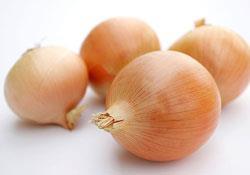
New Zealand’s Environmental Risk Management Authority has given the green light to a field trial of genetically modified (GM) allium – the onion and garlic family – bringing down upon themselves the ire of environmentalists worried it will taint the country’s ‘green’ image.
A proposal for the 10 year trial was put to the ERMA by Crop & Food Research in April (now a part ofnew body Plant and Food Research), and called for a field test including flowering and seeding of GM onions.
Conditions imposed on the test include ‘pollen cages’ – insect-proof cages around the GM crops ensuring standard allium plants are not cross-pollinated. The test will include onions, spring onions, leeks and garlic.
“We are committed to researching options which could lead, in the long term, to the more sustainable production of crops and food for New Zealand,” said Crop & Food Research’s general manager of production Dr Prue Williams of the proposal in April.
“Understanding fundamental plant science is an important part of this research.”
The approval has received fierce criticism from some environmental groups in New Zealand, such as GE Free NZ.
In a press release, the group said the risk of cross-pollination from GM crops could mean economic disaster for New Zealand’s agricultural exports, which trade heavily on a “clean, green image”.
“We cannot afford to lose our export reputation and damage our New Zealand brand name in this time of economic recession,” said GE Free NZ’s Claire Bleakley.
“It is a disaster for New Zealand to be putting its research into a field of technology that is not performing and is a direct threat to our export markets.”
On the other side of the Tasman, however, the South Australian state government denied the use of GM crops with a continued moratorium, echoing concerns of a tarnished environmental image for the state’s exports.
The Tasmanian state government mirrored that move early last week, extending its own ban on GM produce to 2014.
“Tasmania’s GMO-free status is a key factor in the Tasmanian brand and is therefore vital to Tasmania’s primary producers realising their full potential in international and interstate markets,” said the state’s minister for Primary Industries and Water David Llewellyn.
Victoria, New South Wales and Western Australian, meanwhile, approved the use of GM crops, canola and cotton in particular.
Their stance was backed by an Australian Bureau of Rural Sciences (BRS) report released last Friday, which said GM technology offered more robust crops and a drop in pesticide and herbicide use.
“The BRS report indicates that future developments in GM insect-resistant and herbicide-tolerant crops are likely to provide extensive agronomic and environmental benefits to Australian agriculture, helping our farmers increase their productivity and sustainability in the face of climate change,” said the Bureau’s executive director Karen Schneider.



